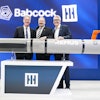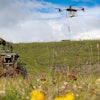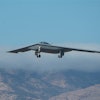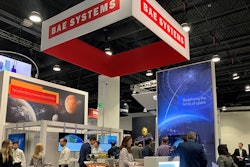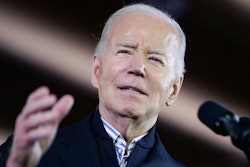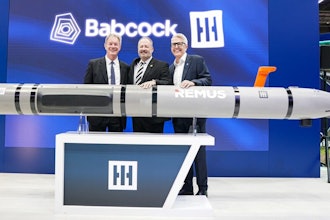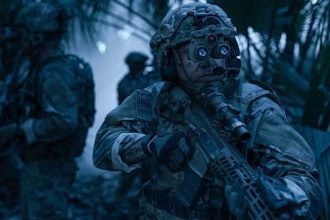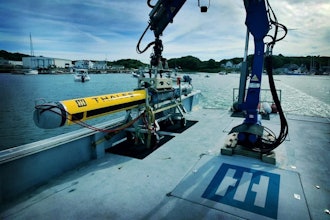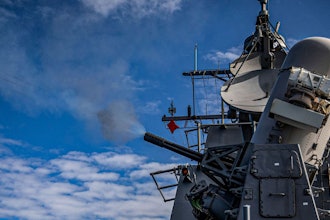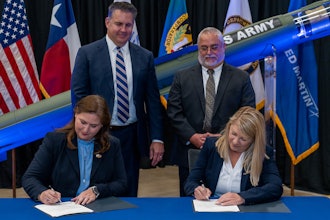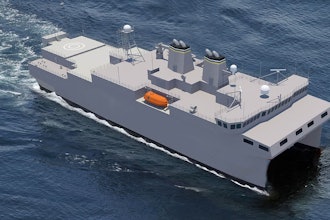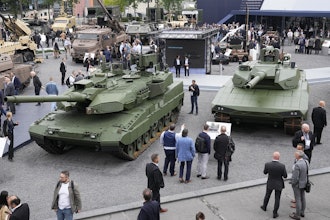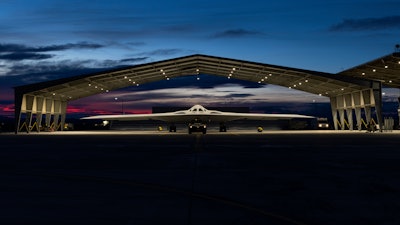
Following its formal unveiling, Dec. 2, 2022, the B-21 Raider began flight testing at Edwards Air Force Base where it continues to make progress toward becoming the backbone of the U.S. Air Force bomber fleet.
During testimony at the Senate Armed Services Committee, Andrew Hunter, assistant secretary of the Air Force for Acquisition, Technology and Logistics, highlighted B-21 flight testing is on track to meet timelines and deliver to the warfighter May 8.
“We are in the flight test program, the flight test program is proceeding well,” Hunter said in response to a question about the B-21 program. “It is doing what flight test programs are designed to do, which is helping us learn about the unique characteristics of this platform, but in a very, very effective way.”
 U.S. Air Force
U.S. Air Force
Hunter explained this is the first aircraft that is more digital than not, which contributes to the program meeting requirements.
The B-21 is a long-range, highly survivable, penetrating strike stealth bomber that will incrementally replace the B-1 and B-2 bombers and will play a major role supporting national security objectives and assuring U.S. allies and partners across the globe.
The B-21 weapon system is manufactured under the Air Force's contract with Northrop Grumman. It is designed with an open systems architecture, enabling rapid insertion of mature technologies, and allowing the aircraft to remain effective as threats evolve over time. The aircraft is expected to enter service in the mid-2020s with a production goal of a minimum of 100 aircraft.
The Air Force Rapid Capabilities Office manages the acquisition program, focusing on making test aircraft as production representative as possible. Test aircraft are built on the same manufacturing line and use the same manning and tooling that will be used in the eventual production.
The AFRCO’s strategy includes building test aircraft as production-representative as possible. Rather than a traditional flight prototype approach, B-21 test aircraft are built including mission systems using the same manufacturing processes and tooling for production aircraft. This approach in development laid the groundwork for production to start more quickly.
When the B-21 enters the service, Ellsworth AFB, South Dakota, will be the first B-21 main operating base and location of the formal training unit. Whiteman AFB, Missouri, and Dyess AFB, Texas, are the preferred locations for the remaining bases and will receive aircraft as they become available.


